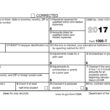Mini-semester classes are a great way to complete a course. See 8 Reasons Mini-Semester Classes Can Work For You to learn why these are so great.
Here are the top ways to successfully complete your upcoming short-term classes!
Pick a class you’re fairly confident in.
Calculus II in eight weeks is not for everyone. Thankfully, there are a bunch of options for which class to choose. Great mini-semester courses to start with are core classes like English, history, and music or art appreciation.
Take a look at the due dates.
With mini-semester classes, there is no time to procrastinate. In a traditional 16-week fall or spring semester there are usually four exams, spaced out about every four weeks. If you are doing a 10- or 12-week class you will have the same four exams, but spaced out every three weeks. For 5- or 8-week classes, you are looking at a test every two weeks.
This isn’t scary, or unmanageable. You just need to know how to plan to study for these. Put all the assignments and tests into your planner or phone calendar to help you remember what is due.
Set aside High-level study time.
You know what is due and when. Next step: get’er’done. Because of the condensed nature of short-term classes, you will need to set aside what I call “high level” study time each week.
Cassi’s definitions:
- Low-level studying– hanging out with a few friends with a book cracked open, skimming through a chapter or looking at example problems.
- Regular Studying– actually doing homework problems (like finding answers to a study guide or working out math equations)
- High-level Studying– Empty room. Total quiet. Intently memorizing the study guide, quizzing yourself, and genuinely learning the information—not just practicing it.
Why? Because work accomplished = time spent x intensity of focus
If you get serious, say, one hour every night for your short-term class and knock out some high-level studying, you will probably be prepared after a few weeks of actual learning to take your test.
If you do poorly on an exam or assignment meet with the professor right away.
There is no time to waste in a mini-semester class. If you are missing key elements then you need to learn what they are right away in order to succeed the next time. Online class? Cool. Email is a thing.
Here are some quick etiquette tips on how to email your professor:
- Start the email with “Professor Johnson,” or “Hello Professor Johnson.”
- Let them know what class and section you are in.
- Dive into what is going on. “I received a D on the last exam, and I was surprised to receive a low grade because I studied diligently for this.”
- Ask for help. “How can I improve my test score next time?”
- Sign off “Thank you, Your Name.”
With good scheduling, studying, and communication with your professor, you are set for success in your mini-semester class!



